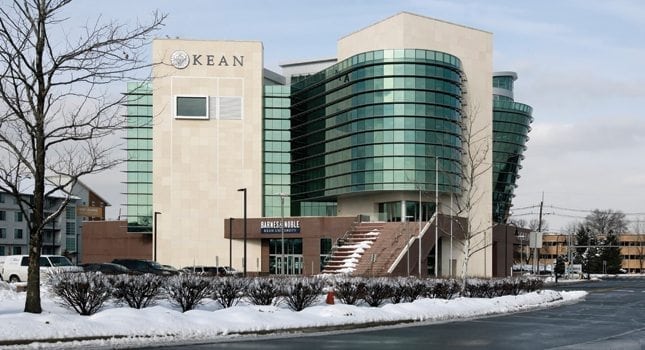
State of Diversity: In Pursuit of Good Health for All New Jerseyans
On Apr 3, 2020New Jersey is a state rich in diversity. The state’s residents hail from more than 100 nations, and the U.S. Census Bureau ranks the Garden State third in the nation in the percentage of foreign-born residents. If the US is a melting pot, then New Jersey could be considered a new, multicultural society that emerges from the melding of many.
However, meeting the healthcare needs of a diverse population is not a one-size-fits-all solution. Disparities in health status and outcomes exist across racial and ethnic groups; language, religious and gender identity can pose understanding and access obstacles; and socioeconomic factors disproportionately impact the health of certain populations. Never has that been more evident – and more important – than in this era of population health, with the healthcare community focused on keeping people well in their homes and communities.
“The dynamics of social justice lead to poor health that carries through for generations,” says Cathy Bennett, president and CEO of the New Jersey Hospital Association. “That’s why the care of our diverse populations is so intertwined with meeting high social needs. New Jersey’s healthcare providers have focused efforts on addressing health and wellness for all of our populations, including systemic changes that tackle implicit biases, along with sustainable, economically viable communities through investments such as jobs, housing and other social determinants of health.”
NJHA has brought awareness to these challenges through its conference series “Patients, Prejudice and Policy,” built on the premise that transformation begins with recognizing the biases that exist within each individual and throughout our institutions, including healthcare. As an example, Bennett tells the story of a young woman with diabetes who was labeled “noncompliant” in her medical chart because she hadn’t taken daily steps to manage her diabetes with blood testing and insulin. But what the record failed to document was that the young woman didn’t have stable housing, and she didn’t always have her insulin with her as she moved among temporary locations. The underlying factor in managing her diabetes wasn’t willful noncompliance – it was homelessness.
Seeing those undeniable linkages and achieving change also requires “breaking down silos” among healthcare providers, public health, social services and community-based groups, Bennett says.
Amanda Medina-Forrester, executive director of the Office of Minority and Multicultural Health in the N.J. Department of Health, agrees, citing the importance of addressing social determinants including discrimination, lack of access to transportation, food insecurity and unstable housing.
“This requires powerful and sustainable collaborations among providers, local public health officials, community and faith-based partners, and other health stakeholders who are on the front lines providing essential public health services in communities that are disproportionately impacted by social determinants of health,” Medina-Forrester says.
CULTURE OF INCLUSION
New Jersey and the nation observe minority and multicultural health month in April, but programs to address disparities and promote inclusiveness operate each and every day across the state. They are becoming increasingly intertwined in the health system culture. Atlantic Health System, for example, has signed a health equity pledge and has incorporated several initiatives into its system, including physician and resident recruitment programs for minority and women clinicians and partnering with Historically Black Colleges and Universities and professional organizations to promote diversity among its team. Its medical centers are all designated as leaders in LGBTQ care on the Healthcare Equality Index, a national benchmarking tool that measures non-discrimination and equality practices.
Other examples of healthcare providers weaving inclusion into their organizational cultures include AtlantiCare’s Diversity and Inclusion Council and Employee Resource Groups which engage employees from an array of populations to improve awareness, education and community outreach. Samaritan Healthcare and Hospice also has an employee-based Diversity Committee as well as a Community Advisory Committee that helps guide the organization in a culturally sensitive manner.
ADDRESSING DISPARITIES
Another factor driving change in multicultural health is the development of community health needs assessments undertaken by hospitals and cross-sector partners to identify health disparities and other unmet needs in their communities. University Hospital in Newark has committed to improving maternal health outcomes for African-American mothers and babies in response to data showing that African-American women are five times more likely to die due to pregnancy complications than Caucasian women. Its initiatives include a Centering Pregnancy program, which provides all-important prenatal care in a group collaborative setting.
Recognizing that the Latino population is disproportionately affected by certain conditions such as hypertension, pregnancy-associated complications and breast cancer, RWJBarnabas Health and Clara Maass Medical Center in Belleville opened the Center of Excellence for Latino Health, which collaborates with partners throughout the community to improve outcomes for Latino residents. Its programs include community-based health education and screenings, a youth mentorship program in which health professionals visit schools to address health topics with students and health ministries in which faith-based groups serve as “health ambassadors.” In another community collaboration, Robert Wood Johnson University Hospital Rahway partnered with local churches and the Gateway Family YMCA-Rahway to address diabetes concerns in the African-American population. The joint programming addresses the diet influences that affect diabetes through offerings such as cooking classes, a recipe exchange, exercise programs and more.
Diabetes also was identified as a disease that disproportionately affects the South Asian community in New Brunswick and its surrounding area. Saint Peter’s University Hospital partnered with the Shri Krishna Nidhi (SKN) Foundation in 2017 to establish the SKN Asian Diabetes Center at Saint Peter’s. The program provides early detection and care through community outreach programs, screenings, health navigation services, education and support services – regardless of the individual’s ability to pay. “The goal is to prevent the onset or at least identify diabetes at an early stage,” says Dr. Meena Murthy, chief of the hospital’s Division of Endocrinology, Nutrition and Metabolism. “Diabetes is a silent killer that causes premature disability and death. If undetected, it presents with significant costly complications already at the chronic stage.”
In Elizabeth, Trinitas Regional Medical Center recognized that many women in its community lack access to breast cancer prevention services. It has moved to fill that need with the Connie Dwyer Breast Center, a state-of-the-art breast cancer center. A bilingual team serves women from across the region’s Latina population.
At Kessler Institute, serving its population includes an expanded program to meet the unique needs of orthodox Jewish residents. In addition to its well-established kosher meals program, Kessler has expanded its offerings to include a kosher kitchenette for rehabilitation clients and their families, a meditation room for prayer and a designated elevator for use on the Sabbath. The center worked closely with Jewish organizations in the areas to design offerings that would meet their religious observances.
Healthcare providers also have become more aware and engaged in recognizing the health barriers facing individuals based on gender identity. In fact, New Jersey ranks among the top five states nationally in the number of Healthcare Equality Leader hospitals. The Valley Hospital in Ridgewood is one of those hospitals, recognized for earning top scores for its inclusive policies and practices, spanning areas like patient services and support, staff training and employment benefits and policies.
In Hopewell, Capital Health’s Pride Initiative focuses not only in providing a welcoming environment for LGBTQ patients, but also on visibility with the public about the LGBTQ community and its health needs.
Other LGBTQ inclusion programs operate at Hunterdon Health, which provides a navigator program to connect patients with any array of services, and Penn Medicine Princeton Medical Center, which has developed more inclusive policies and practices, ranging from an LGBTQ patient rights document to signage for gender-neutral bathrooms.
Inclusion is also the goal for other populations, including those living with disabilities. The Matheny Medical and Educational Center in Peapack promotes diversity and inclusion by providing people with disabilities opportunities to engage in their communities through initiatives like its Miles for Matheny Wheelchair Walk and its Brave Bag partnerships with several police departments.
BUILDING HEALTHIER COMMUNITIES
In communities across New Jersey, social determinants like housing, education, food access and transportation are essential for good health, and they disproportionately affect marginalized populations. Hospitals and health systems are investing mightily in these initiatives, with programs that benefit the entire community, but especially those in low socioeconomic groups. In Camden, The Cooper Foundation has partnered with the Norcross Foundation and AmeriHealth New Jersey with a $1-million commitment to the Camden Health and Athletic Association. The CHAA encourages healthy behaviors, social interaction and a sense of community for youth – all important factors in good health.
For many communities, access to seamless healthcare services poses challenges to diverse populations. CentraState Healthcare System in Freehold addressed that need in partnership with the Visiting Nurse Association Health Group, the Rutgers Robert Wood Johnson Medical School and Visiting Nurse Association of Central Jersey (VNACJ) Community Health Center to create the Freehold Family Health Center in the heart of the downtown area. Easily accessible, the new health center provides an array of primary and specialty services to area residents of all ages, from prenatal care to geriatrics.
Another community partnership to promote good health is the Roots to Prevention Partnership, which brings together Virtua Health, Camden County, Rowan University, the Camden Coalition of Healthcare Providers and others to provide fresh produce to communities with limited access to healthy foods. A committee of Camden residents will help shape the program, with a goal of improving the city’s food environment and creating sustainable solutions.
“This is what community health is all about: neighbors taking care of neighbors,” says April Schetler, assistant vice president of community health engagement at Virtua Health.
To access more business news, visit NJB News Now.
Related Articles:





